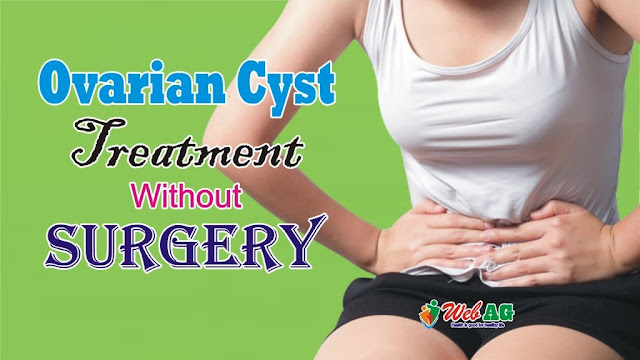Ovarian cysts are fluid-filled sacs that develop within or on the surface of the ovaries. While many ovarian cysts are harmless and resolve on their own, some may cause discomfort, pain, or other symptoms that require treatment.
While surgery is often recommended for large, persistent, or complex ovarian cysts, there are non-surgical options and management strategies available for certain cases. This article explores various non-surgical treatment approaches for ovarian cysts, ovarian cyst treatment without surgery:
Ovarian Cyst Treated Without Surgery
Watchful Waiting
In cases where the ovarian cyst is small, simple, and not causing any symptoms, doctors may recommend a "watchful waiting" approach. This involves monitoring the cyst over time to observe if it resolves on its own without intervention. Regular check-ups and ultrasounds are typically scheduled to assess the cyst's size and any changes in symptoms.
Oral Contraceptives
Oral contraceptives, commonly known as birth control pills, are a common non-surgical treatment option for ovarian cysts. These hormonal medications can help regulate the menstrual cycle and prevent the formation of new cysts. They may also reduce the size of existing cysts and alleviate associated pain or discomfort.
Pain Management
If an ovarian cyst is causing pain or discomfort, over-the-counter pain relievers such as ibuprofen or acetaminophen can be used to manage the symptoms. However, it is essential to consult with a healthcare professional before taking any medication to ensure its suitability and proper dosage.
Hormone Therapy
Hormone therapy, similar to oral contraceptives, involves the use of hormonal medications to regulate the menstrual cycle and prevent the development of new cysts. This approach is particularly useful for managing certain types of ovarian cysts, such as functional cysts or polycystic ovary syndrome (PCOS)-related cysts.
Aspiration or Drainage
In certain cases, a doctor may recommend draining or aspirating the fluid from a cyst using a needle and syringe. This procedure, known as cyst aspiration or drainage, can help relieve symptoms caused by a large cyst. However, it is important to note that this procedure does not remove the cyst's walls and there is a possibility of recurrence.
Natural Remedies
Some individuals may opt for natural remedies or complementary therapies to manage ovarian cysts. These may include dietary changes, herbal supplements, acupuncture, or homeopathic remedies. While there is limited scientific evidence to support the effectiveness of these approaches, some individuals may find them beneficial. It is crucial to consult with a healthcare professional before using any natural remedies to ensure their safety and potential interactions with other medications.
Conclusion:
While surgery is often necessary for the treatment of certain ovarian cysts, non-surgical options, and management strategies can be considered in specific cases. The appropriate treatment approach depends on various factors, including the size and type of the cyst, the severity of symptoms, and the individual's overall health. It is important to consult with a healthcare professional to determine the most suitable treatment plan and to monitor the cyst's progress over time.




.png)













